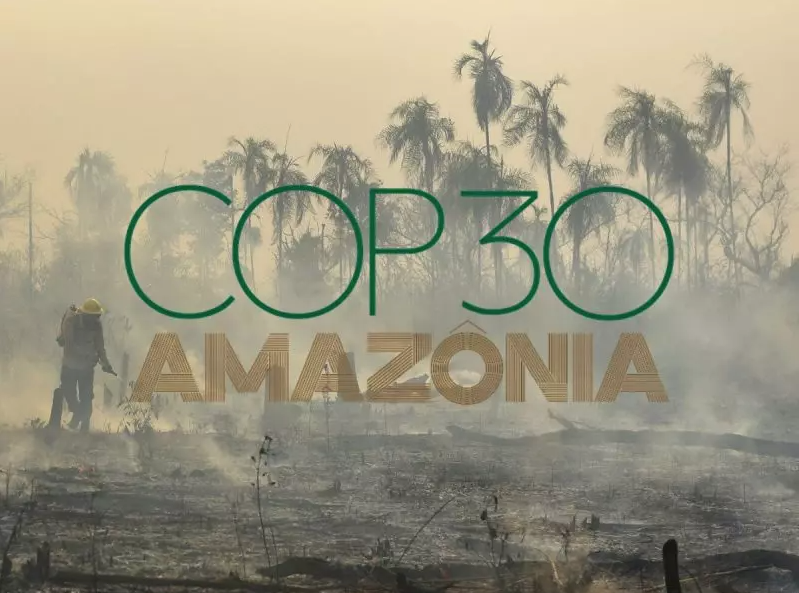Climate Finance and Justice: The Central Knot of COP30 in the Amazon
- Elétrica Sustentável Automatizada

- Oct 31, 2025
- 3 min read
The 30th United Nations Climate Change Conference, COP30, will be held in Belém do Pará, Brazil, in November 2025, and already carries historical symbolism by taking place in the heart of the Amazon. However, for discussions and promises to move from paper to practice, a fundamental issue dominates the negotiating table: climate finance.
It is not enough to have the science and the ambition; money is required to transform commitments into action. And this is where the discussion connects directly with another central pillar of the conference: Climate Justice.

The Finance Knot: Why Money is the Fuel for the Transition
The global energy transition, the adaptation of cities, and the fight against deforestation require trillions of dollars. Most of this capital is needed in developing countries—which are the most vulnerable to climate impacts but have historically contributed the least to the crisis.
The core of the negotiation involves two main resource flows:
Mitigation (Emissions Reduction): Investment in renewable energy, clean transportation, and low-carbon technologies.
Adaptation: Application of resources to make communities and infrastructure more resilient (e.g., flood warning systems, drought-resistant agriculture, heatwave-prepared hospitals).
Historically, wealthy nations promised $100 billion annually in climate finance to poorer countries—a target that has been controversial and not fully met. At COP30, the pressure will be for this commitment to be not only honored but also scaled up and restructured to be more accessible.
Note: The location of COP30 in Belém puts the world's eyes on the Amazon, reinforcing the urgency of financing for forest protection.

Climate Justice: The Unequal Impact of the Crisis
The concept of Climate Justice is the recognition that the impacts of climate change are profoundly unequal and tend to exacerbate existing social inequalities.
Who is being hit hardest?
Rural and Coastal Populations: Communities that rely directly on nature for their livelihoods (agriculture, fishing) and are the first to feel extreme droughts or sea-level rise.
Indigenous Peoples and Traditional Communities: Although they are the great guardians of the forests, they suffer disproportionately from environmental degradation and have less access to adaptation resources.
Poorer and Peripheral Populations: In urban areas, these are often the people who live in high-risk zones (slopes, flood-prone areas) and have greater difficulty recovering after extreme events.
At COP30, Brazil and the Global South advocate that the climate agenda cannot be just about emissions; it must be about people, equity, and historical reparation. The active participation of representatives from traditional communities in the conference is vital to ensure that decisions are just and inclusive.

The Brazilian Proposal: The Tropical Forests Forever Fund (TFFF)
One of the proposals expected to gain prominence in Belém is the creation of innovative financial mechanisms. One example is the Tropical Forests Forever Fund (TFFF), proposed by Brazil.
The objective is simple yet ambitious: to raise capital from countries and companies to permanently finance the conservation of tropical forests, recognizing the immense environmental service they provide by absorbing carbon and regulating the global climate.
The expectation is that COP30 will serve as the main platform to mobilize the necessary resources, creating a solid bridge between climate ambition and the money that will make it happen, with a focus on those who need it most.
Want to see more content like this? Visit our main Blog page!
#COP30 #COP30Belém #Amazon #ClimateConference #BelémDoPará #ClimateFinance #ClimateJustice #TFFFund #ParisAgreement #SDGs #SocialEquity #EnergyTransition #Bioeconomy #CircularEconomy #SustainableDevelopment #Greenwashing #SustainableTaxonomy #Mitigation #ClimateAdaptation #Biodiversity #IndigenousPeoples #ClimateAgenda #ClimateResilience #Sustainability #ClimateCrisis #Climate_Is_Priority #ClimateAction #E_S_A #Sustainable_Automated_Electric






Comments